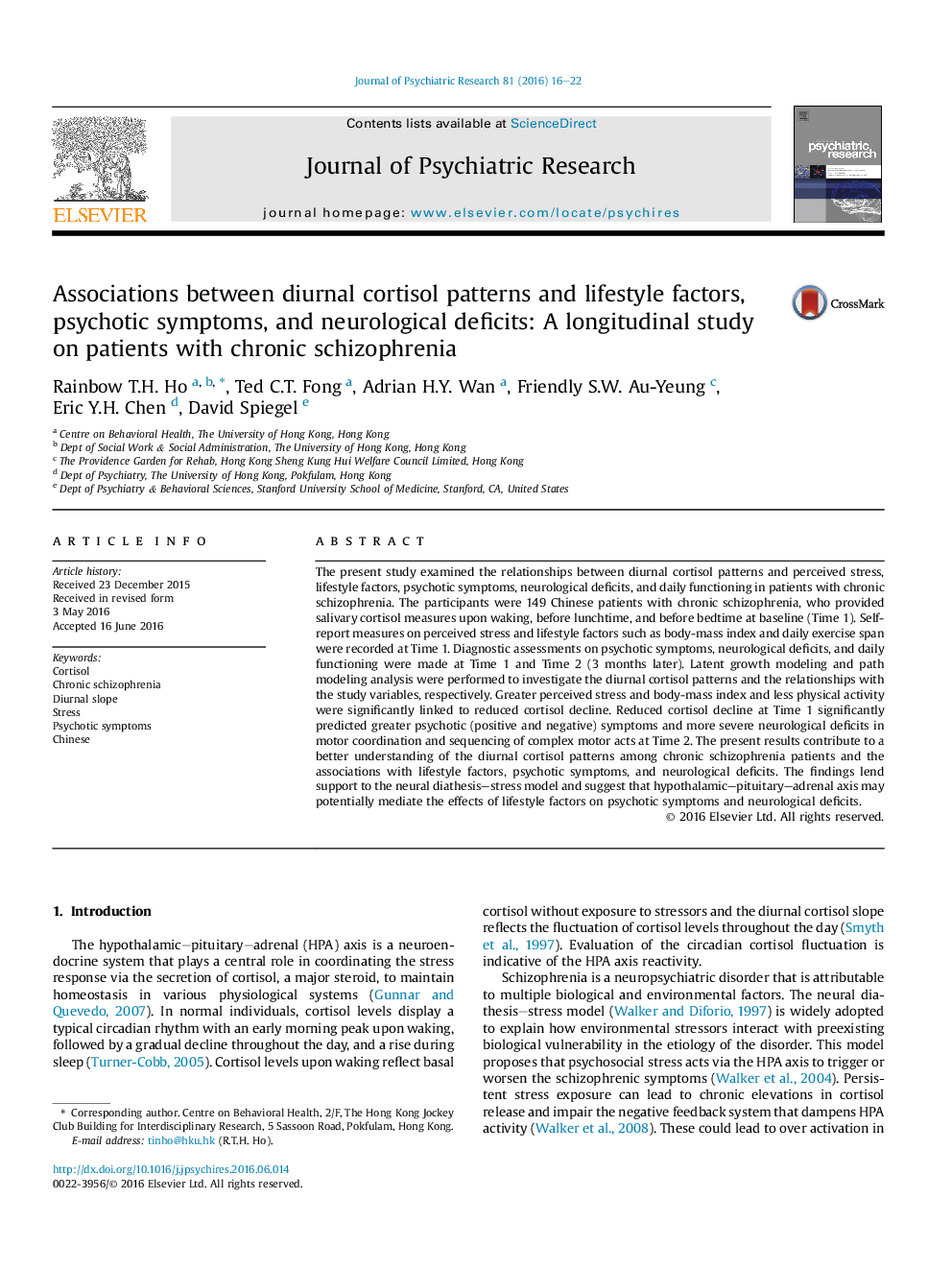| کد مقاله | کد نشریه | سال انتشار | مقاله انگلیسی | نسخه تمام متن |
|---|---|---|---|---|
| 326400 | 542411 | 2016 | 7 صفحه PDF | دانلود رایگان |
• Greater stress and BMI and less exercise predict reduced cortisol declines.
• Reduced cortisol declines predict greater positive and negative psychotic symptoms.
• Reduced cortisol declines are linked to greater motor and sequencing deficits.
• The results elucidate diurnal cortisol patterns in chronic schizophrenic patients.
• The HPA axis may mediate the effects of lifestyle factors on symptoms and deficits.
The present study examined the relationships between diurnal cortisol patterns and perceived stress, lifestyle factors, psychotic symptoms, neurological deficits, and daily functioning in patients with chronic schizophrenia. The participants were 149 Chinese patients with chronic schizophrenia, who provided salivary cortisol measures upon waking, before lunchtime, and before bedtime at baseline (Time 1). Self-report measures on perceived stress and lifestyle factors such as body-mass index and daily exercise span were recorded at Time 1. Diagnostic assessments on psychotic symptoms, neurological deficits, and daily functioning were made at Time 1 and Time 2 (3 months later). Latent growth modeling and path modeling analysis were performed to investigate the diurnal cortisol patterns and the relationships with the study variables, respectively. Greater perceived stress and body-mass index and less physical activity were significantly linked to reduced cortisol decline. Reduced cortisol decline at Time 1 significantly predicted greater psychotic (positive and negative) symptoms and more severe neurological deficits in motor coordination and sequencing of complex motor acts at Time 2. The present results contribute to a better understanding of the diurnal cortisol patterns among chronic schizophrenia patients and the associations with lifestyle factors, psychotic symptoms, and neurological deficits. The findings lend support to the neural diathesis–stress model and suggest that hypothalamic–pituitary–adrenal axis may potentially mediate the effects of lifestyle factors on psychotic symptoms and neurological deficits.
Journal: Journal of Psychiatric Research - Volume 81, October 2016, Pages 16–22
